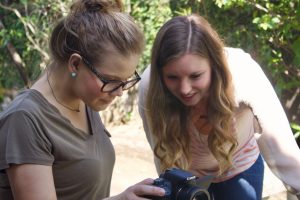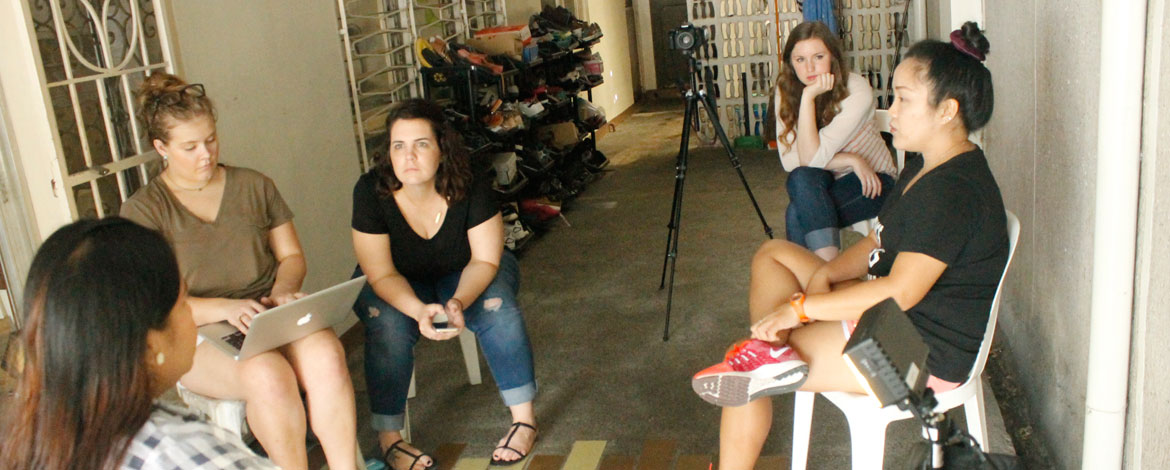By Matthew Salzano ’18
Pacific Lutheran University seniors, Cara Gillespie and Elise Anderson, publicly premiered their documentary, “More Than A Mission,” during the spring of 2017.
The documentary shared the story of a woman who escaped the bonds of human trafficking in the Philippines, shining light on how thoughtful activism can transform lives.
“These women are my age: we have similar interests, hopes and dreams. But we’ve had remarkably different lives, and my journey has been far easier. I knew I had to use this privilege to help them any way I could,” Gillespie said. “This project has truly been a transformational journey for me.”

The documentary focused on Kenny Sacht’s organization, Wipe Every Tear; a Christian organization with a unique mission that surprisingly doesn’t evoke the name of Jesus as it helps rescue young women from the sex trade.
Instead, the organization focuses on helping women finish high school and attain a college education. Wipe Every Tear intentionally offers the women a way out of the bars and a way out of poverty.
Sacht said that his critics shake their heads and say things like “these women are going to take advantage of you if you offer them college tuition.” Sacht says in the film: “Our response is we know they’ll take advantage of us, that’s the point, because God lives in us and so we really want them to take advantage of us.”
After the screening of the 30-minute film, three panelists from the Puget Sound spoke to how the issues presented in the film directly affected our surrounding communities.
The panelists included Sacht, CEO and founder of Wipe Every Tear; Carlyn Sampson, director of advocacy and prevention education at Rebuilding Hope; and Farshad Talebi, the assistant attorney general who leads Washington state’s Human Trafficking and Child Exploitation Unit.
The film was entirely produced by PLU students. Gillespie and assistant producer Anderson recorded, wrote and edited the film, Nathan Tunheim ’18 composed the soundtrack and Rizelle Rosales ’18 narrated.
“It was incredibly important to work with my peers. The more students involved, the more each of us were learning. More importantly, we were helping make more people aware and involved with ending the tragedy of human trafficking,” Anderson said.
The two students and their faculty adviser, Joanne Lisosky, were funded by PLU’s new Diversity, Justice and Sustainability Fund to purchase equipment and travel to the Philippines in January. Every PLU student pays $10 a semester to the fund, and a diverse team of students, faculty and staff fund projects that are “socially relevant and accessible.”
The documentary was also sponsored by PLU’s multidisciplinary Center for Media Studies, which has produced Emmy-recognized work such as “Changing Currents” and “Illicit Exchanges: Canada, the U.S. & Crime.”

